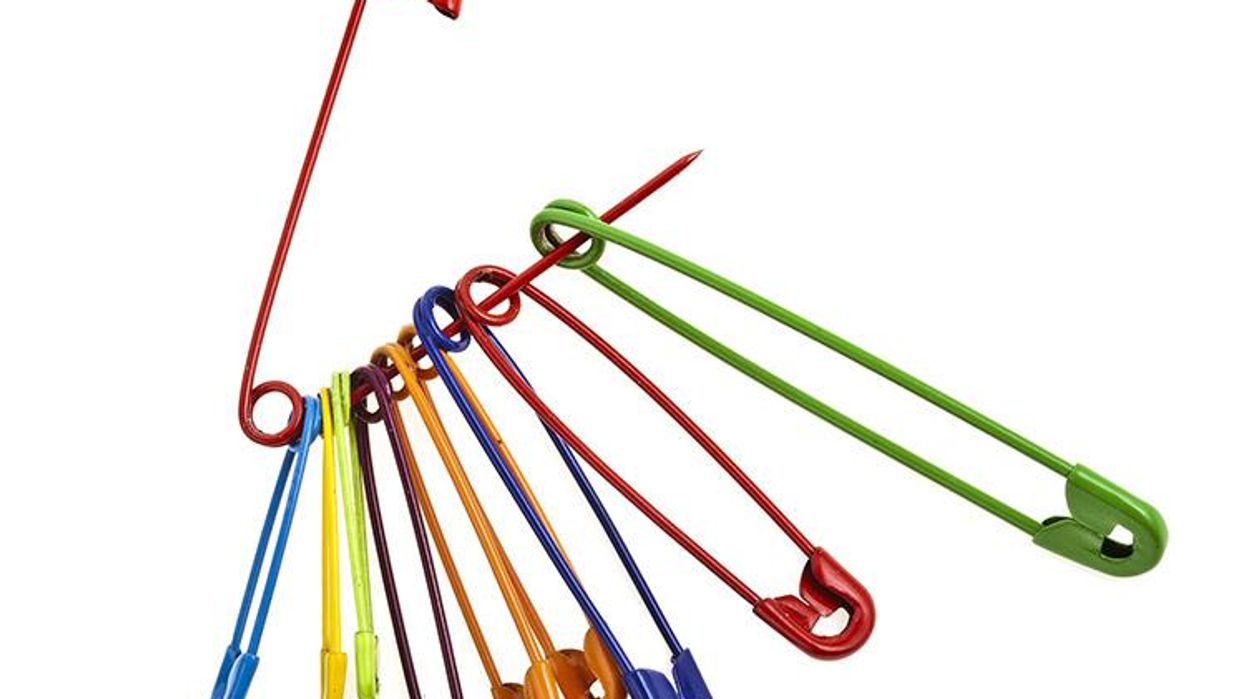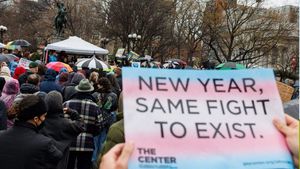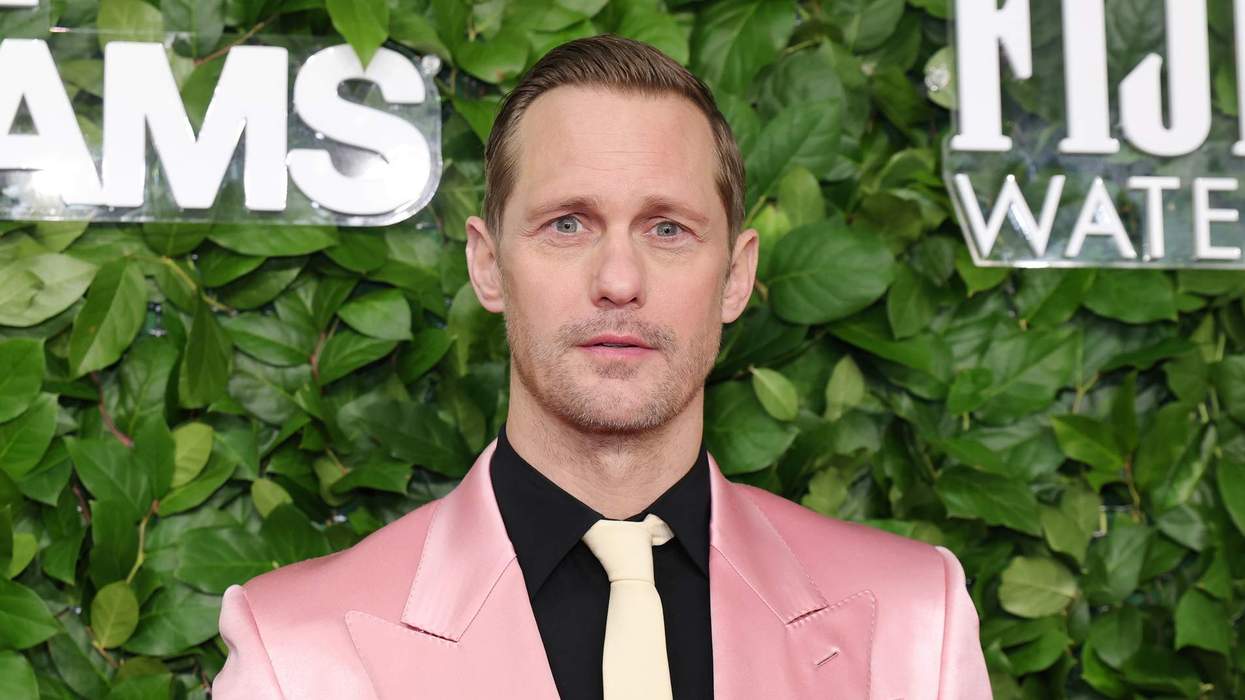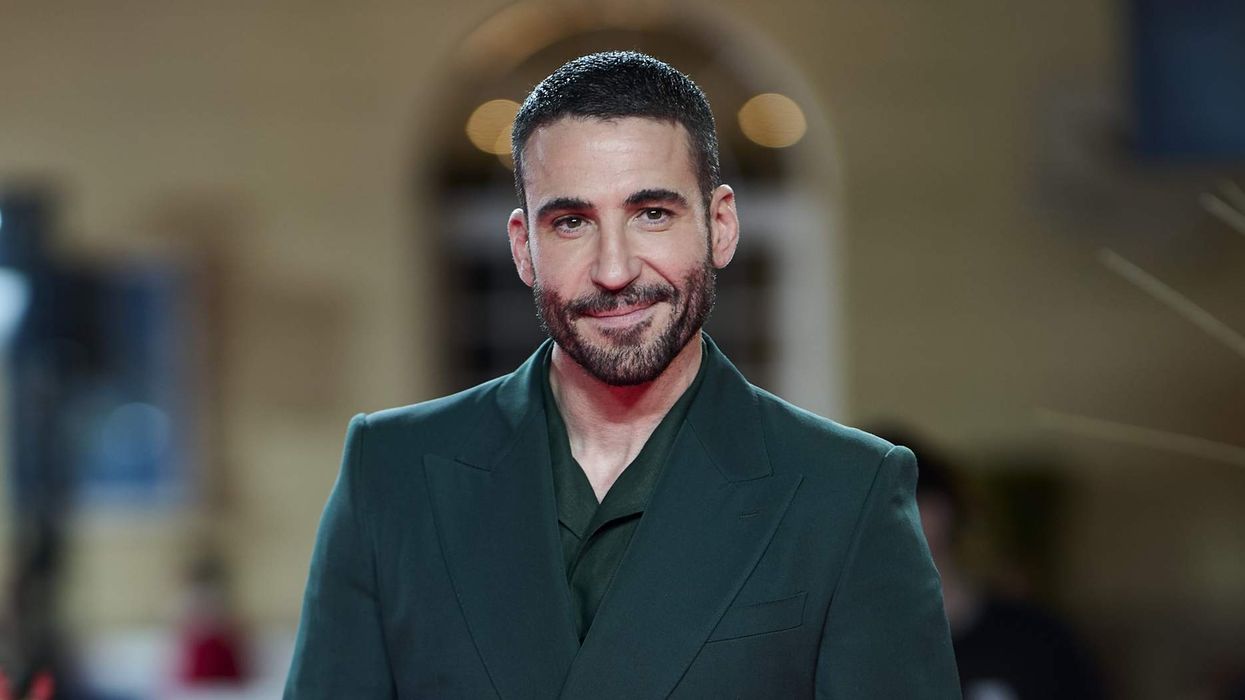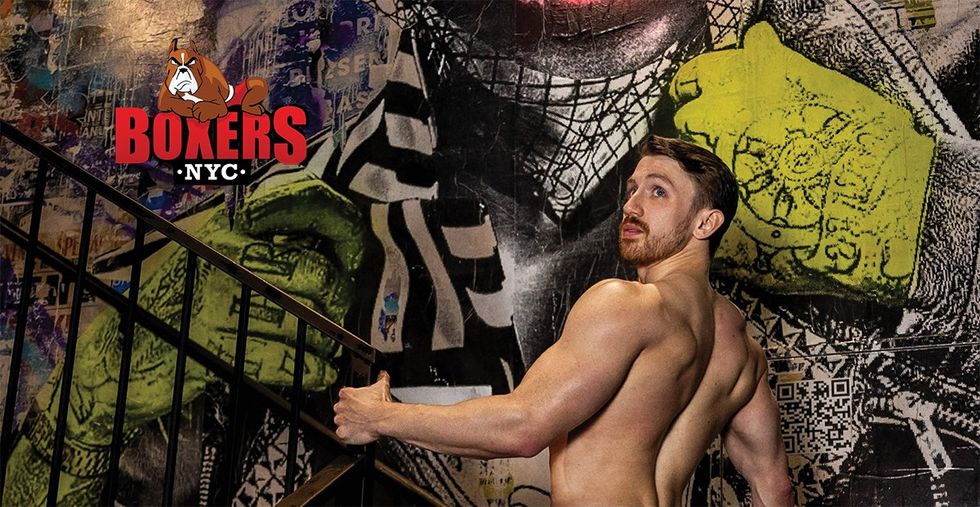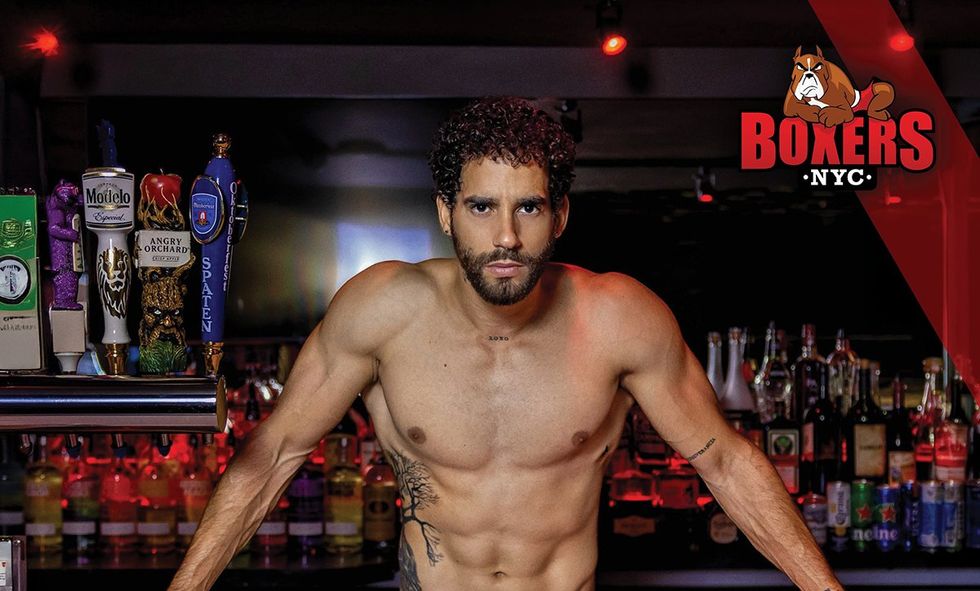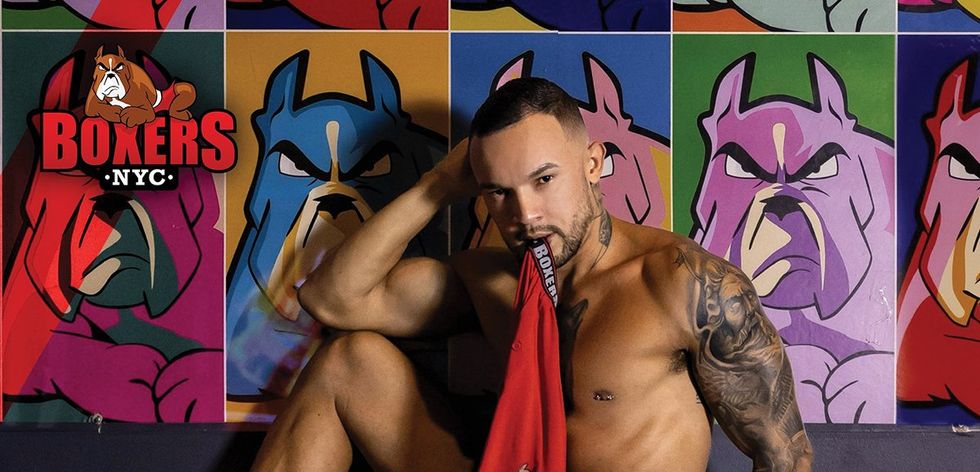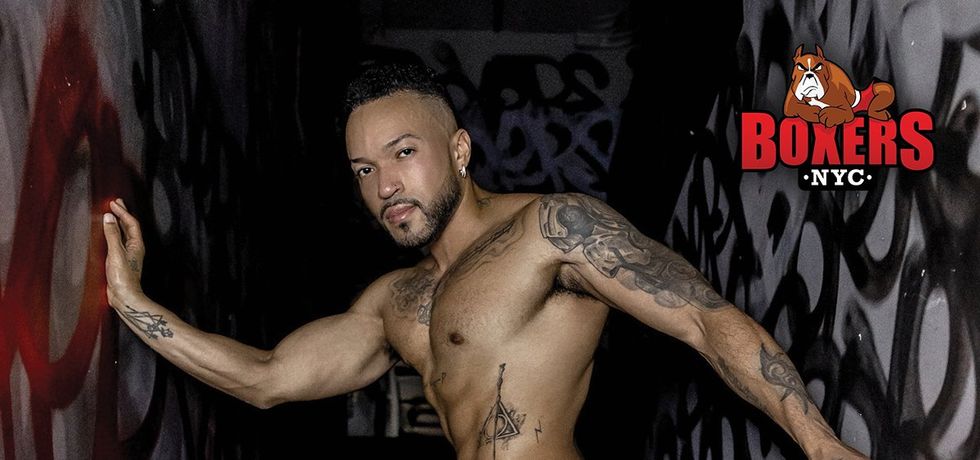In the midst of this fiery hellscape of an election and its even more traumatizing aftermath, it's a little unexpected that one of the biggest controversies on the internet would be...safety pins. Sure enough, after Trump's controversial/horrifying win, safety pins suddenly started showing up on the scene as a sign of solidarity, designating its wearers as "safe spaces" for minorities and groups that Trump and his followers have threatened. It developed out of a similar Brexit movement, and was initially meant with power and pride. However, over the last week, as the safety pins rose in popularity so did their critics. Demetria Lucas D’Oyley of The Root declared the safety pins were an "empty gesture," a symbol of wanting to seem "enlightened" but not really do anything about it. The white male writer of this Huffington Post piece viciously chastised other white people, calling them "embarrassing" and self-congratulatory.
What I think we can all agree on is that, for better or worse, the safety pin is meant to be a positive gesture. It's a step in a direction that doesn't suck, at the least, and we could use any ounce of positivity that's out there right now. But it's also not a gesture to make yourself feel better about making a stand; it's meant to make others feel like you're truly standing with them and that you're fully prepared for what that means. There's a promise of real action that needs to come with wearing that symbol, and it's okay to be right at the beginning of your education about what that will take. Many people want to be support systems but don't know how. They didn't plan to be leaping into activism at this point and they may be stumbling in their education, but still want to learn. Many were already there in the thick of the fight and this is just another day on the front lines. Why not join forces and learn a little bit about how those who are just getting started can catch up and be an effective part of a positive movement? There's enough hatred out there without alienating people who genuinely want to do good. Now, let's make sure that's doing good and not just meaning well.
10. Learn what it would actually take to turn yourself into a "Safe space."
There is a responsibility that comes with designating yourself as someone people can trust to keep them safe. Do you have a plan if you end up caught in a scenario where someone would be looking for the help you claim to offer? Artist Marie-Shirine Yener's comic (which you can view here) demonstrates how you might be able to calmly diffuse a verbal attack on a Muslim person. Note: It was written in September, because this has always been a problem. The comic descibes a process of a "safe space" person sitting next to the Muslim person being targeted, ignoring their attacker, and striking up a random conversation while maintaing eye contact. As for me, my discussion would be something normalized in commuter chat. Does this train go to a certain stop? What stop is next? A request for assistance, or something natural and easy to carry on. Perhaps you'll understand you need to get off the train with them at the next possible stop. Perhaps they won't want your help, that's their choice as well.
9. Understand what you are and aren't willing to do.
An article I read during personal research discussed the steps of how far safety pin-wearers might have to go to uphold that safe space attitude. The article discussed what your approach might be if the situation got violent -- would you be able to take a punch? Even if you meant well, might you end up running away and leaving the person you were supposed to be supporting to handle the altercation? Violence will hopefully never be the answer, but we've certainly seen it out there. If there's a chance you're not ready for that situation, consider how honestly you can wear your safety pin. You wouldn't want to leave someone abandoned when they needed your help most.
8. Become an active part of organizations making real change.
Safety pins don't just mean making eye contact with someone on the street and smiling knowingly. Especially for those who are just starting to explore activism for the first time as a result of this election, spending time volunteering for an organization you trust and believe is in a great way to get involved. This isn't all about being a sidewalk vigilante, it's about fighting for what you're passionate about effectively. Sometimes, that won't mean you saved the day singlehandedy and in a snap, but you really put the hours in to make a large-scale difference with a life-minded group. For example, I've signed up to attend an online Trevor Project orientation, because I believe I could initially be best suited helping the young people in LGBT community while I learn how to best support other communities. It's okay to go one step at a time.
7. Don't be ashamed about what you don't know. Learn about it.
So you don't know what the ACLU stands for? Google it, then join their email list. Spend some down time reading about their stances and policies and how your voice might be a player in their mission. If you're confused about why people are put off by safety pins, read about it. Listen to the real concerns of people of color who are in real danger, of Muslim women who feel they can't wear hijabs. If you're a white person, these concerns might not be a part of your life, but it's time to understand why they're valid, important, and why you might not be right about what you think is right for others, even if you think it's for the best. Sometimes, the best thing we can do is accept we can never truly understand, and then do our best from there.
6. Sign petitions, but also know how to take matters into your own hands.
Hashtag away, my friend, but then get off Twitter and find out how you can call your representative. Donald Trump's pick for chief strategist, Steve Bannon, doesn't care if he's trending because you don't like him, but you can literally make your voice be heard. Same with the Electoral College. Be loud, be legal, and make them listen.
5. Donate where you can, when you can.
One of the best things to come out of this shitstorm is the amount of Planned Parenthood donations being made in Mike Pence's name. The holidays are coming up, folks, there's never been a better gift for your hyper conservative relatives then a staunch dedication to women's rights. Or the NAACP. Or the National Immigration Law Center. The good you can do is limitless.
4. Protest, but make sure you do it peacefully.
Join the thousands in the streets who are demonstrating just how horrified they are by how BBC's Black Mirror became real life, but don't break the law. By all means, find folks who feel your passion and commiserate and fight with them, but the best way to do so will be legally, so that no one can really stop you. It's the long game, but it's going to work better if we're all in it. It's also okay not to protest. Don't feel guilty if you ignite your activism in other ways. Being in the fray isn't for everyone, and staying within your safety and comfort zone is important, especially in high-tension times.
#xenophobia #racism #sexism #ableism #safetypin
A photo posted by Jeannie A. (@jeannieelenaalvarez) on
3. Talk to people with differing beliefs if you can also stay sane.
Are there some conversations not worth having? Perhaps yes, if you're looking to talk some sense into the person leaving their 15th uninterrupted Facebook comment about how liberals are committing these hate crimes to frame them on Trump supporters. That person might not be worth your time. But talking to Trump supporters who genuinely don't know what kind of social implications their economic vote might have could make a difference in a world view, and that's worth the time. Setting some facts straight with real stats and figures might genuinely open an eye or two and demonstrate a different way of looking at the world and the different people in it. Also, the more you listen to their concerns, the more you'll be able to understand how your stance can be most effectively implicated. Education makes change, not silence.
2. Consider taking the politics plunge and running for office yourself.
Hate the world? Know you know better? Then start your own path to the ultimate involvement. Wendy Davis, former Texas State Senator of pink sneakers filibuster fame, started a site called Deeds Not Words, which focuses on turning ideas about women's equality into action. It's simple, easy to follow, and walks you through making a change in your life to be a part of change you never imagined taking part in. The "She Should Run" incubator provides support for women considering running for office. If we've learned anything this year, it's that anyone can be a politician. Literally anyone, ever. If you're ready to protect the equal rights, your neighbors of every race, religion, gender, and sexuality, and help America truly be as free as it promises, this is a major step to take. Don't just wear the safety pin; be one.
1. Wear that safety pin if you really feel like you are ready to stand for what it represents.
Are you ready to be the person who stands up when things get scary? Are you ready to be someone people can trust if they're looking out for you? Are you going to take that responsibility seriously and know when your help is and isn't needed? If so, and if you want to wear that safety pin, go right ahead. You've done the research, that's your choice, and there are plenty of people out there who might be happy to see it on you. Perhaps you're just at work and want to say something - anything - to the people you want to connect with in passing. Let's use our positivity wisely and carefully and understand that we don't know everything. Our best education comes from others, and sometimes others need education from us. There's no right or wrong answer to these things, but let's learn from each other and move forward together.
